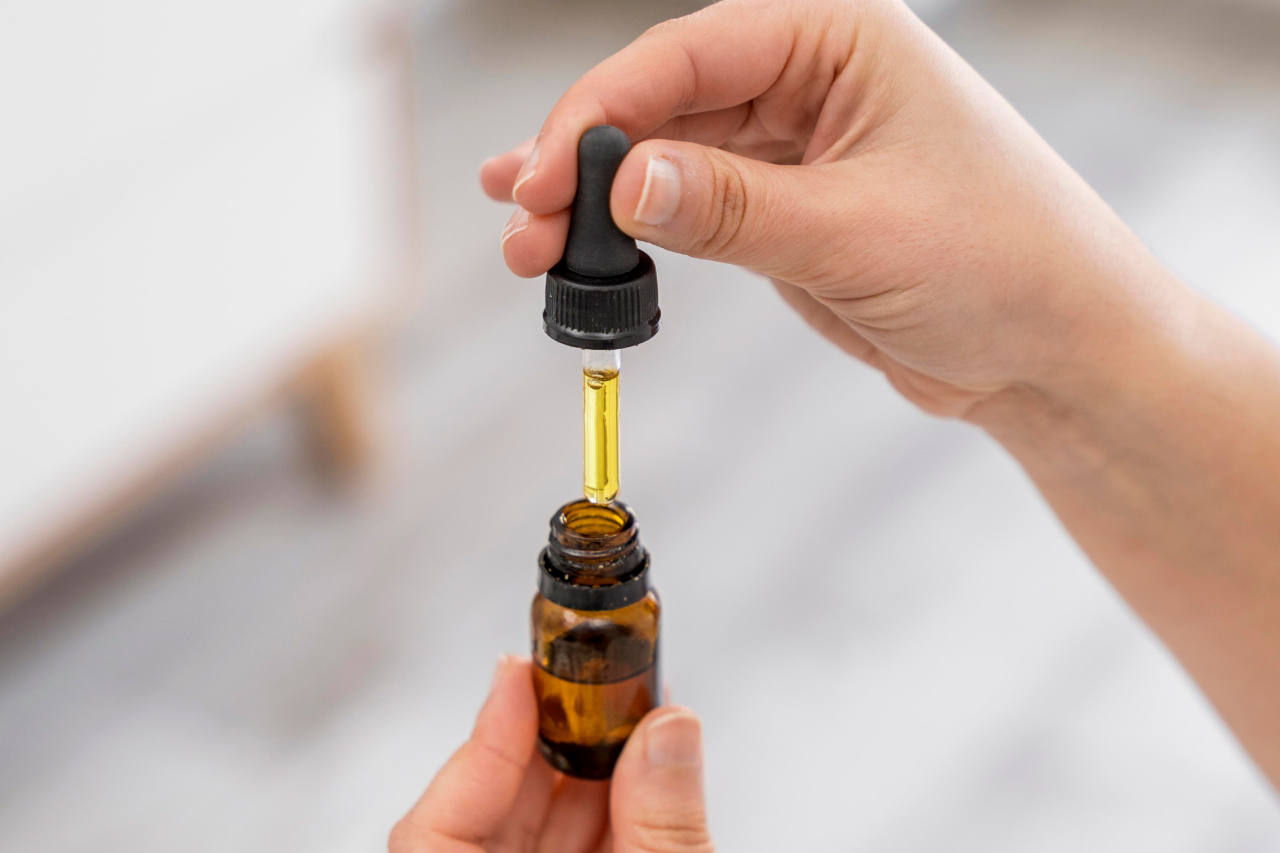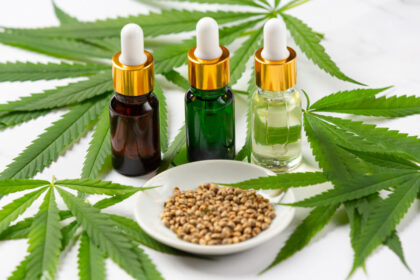The buzz around CBD oil is undeniable.
From glossy magazine covers to neighborhood cafes, this natural compound has seemingly infiltrated every corner of the wellness landscape.
But amidst the hype and hopeful claims, confusion about its true capabilities often remains.
So, before you add CBD oil to your daily routine, let’s embark on a fact-finding mission, separating science from speculation and unveiling the truth about what it can and can’t do for you.
Beyond the Buzzword: What is CBD?
CBD, or cannabidiol, is a naturally occurring compound found in the cannabis plant.
Unlike its psychoactive cousin, THC, CBD doesn’t deliver a mind-altering high.
Instead, it interacts with the body’s endocannabinoid system (ECS), a complex network of receptors and signaling molecules that regulate vital functions like mood, sleep, pain perception, and inflammation.
Think of the ECS as the body’s internal orchestra, and CBD as a guest conductor, capable of fine-tuning various melodies within this intricate symphony.
Is CBD effective?
Indeed, there is evidence supporting the effectiveness of CBD for certain conditions, but it’s crucial to note that not all the claims surrounding CBD are substantiated.
Contrary to some assertions, there is no evidence suggesting that CBD can cure cancer.
However, there is moderate evidence indicating its potential benefits in improving sleep disorders, alleviating fibromyalgia pain, managing muscle spasticity associated with multiple sclerosis, and addressing anxiety.
Users commonly report that oral CBD consumption aids in anxiety and pain relief, as well as promoting better sleep.
However, the same cannot be asserted for numerous other CBD products available today, particularly those applied topically.
The clinical benefits of these products remain uncertain due to insufficient testing.
Furthermore, thorough testing reveals that many CBD products may not contain the specified ingredients as indicated on the label, with some having lower CBD content than advertised.
Thus, consumers should exercise caution and be discerning when purchasing CBD products, as not all may deliver the expected results.
The Symphony of Potential: Exploring the Benefits of CBD Oil
While research on CBD is still unfolding, multiple studies have hinted at its potential to address a range of health concerns.
Here are some of the most promising areas:
Harmony with Anxiety and Stress
The modern world often feels like a cacophony of demands and deadlines, leaving many wrestling with chronic anxiety and stress.
CBD, with its ability to interact with the ECS, could play a role in restoring balance.
Early studies suggest it can reduce anxiety symptoms, ease emotional reactivity, and promote a sense of calm, helping you regain control of your inner tempo.
A Softer Note on Pain: Chronic pain can disrupt the rhythm of daily life, impacting mobility and well-being.
Here, CBD’s anti-inflammatory and analgesic properties come into play.
Research suggests it could help manage pain associated with conditions like arthritis, fibromyalgia, and even nerve damage.
While it won’t silence the pain completely, it might offer a softer note of relief.
Lullaby for Sleepless Nights
For those tossed and turned by insomnia, CBD might offer a potential sleep remedy.
Its calming effect and ability to reduce anxiety could indirectly improve sleep quality and duration, allowing you to finally hit the right notes for a restful night.
Epilepsy
Tuning a Chaotic Harmony: Epilepsy, a condition characterized by unpredictable seizures, can be debilitating.
While conventional treatments exist, some individuals remain unresponsive.
In certain cases, CBD has shown promise in reducing seizure frequency and severity, offering a ray of hope for regaining control over this often-chaotic melody.
Pain Management
CBD has shown potential in managing chronic pain, including pain associated with arthritis, fibromyalgia, and multiple sclerosis.
Its anti-inflammatory and analgesic properties may help reduce pain perception and improve overall well-being.
Beyond the Melody: Understanding the Limitations of CBD Oil
While the potential of CBD oil is exciting, it’s crucial to remember that it’s not a cure-all and has limitations.
Here are some key considerations:
The Unsung Chorus: Lack of Standardization
The CBD industry is still young, and quality control can vary significantly.
Look for reputable brands that use high-quality, organically grown cannabis and third-party testing for purity and potency.
The Soloist’s Song: Individual Variability
How you respond to CBD is unique.
Factors like genetics, body weight, and existing health conditions can influence its effectiveness.
Start low and go slow, adjusting the dosage based on your individual needs.
The Unfinished Symphony: Ongoing Research
While promising, CBD research is still evolving.
Large-scale, long-term studies are needed to fully understand its efficacy and potential side effects in various contexts.
Making Informed Decisions About CBD Oil
Navigating the world of CBD can feel like stepping into a new musical genre.
To ensure a harmonious experience, follow these tips:
Consult your Conductor
Before adding CBD to your wellness orchestra, talk to your healthcare professional.
They can help assess potential interactions with existing medications and guide you towards safe and effective use.
Listen to the Rhythm
Choose reputable brands and quality products.
Look for independent lab testing and certifications to ensure purity and potency.
Find Your Tempo
Start with a low dose and gradually increase as needed, paying close attention to your body’s response.
Remember, CBD is just one instrument in your well-being orchestra.
Combine it with healthy lifestyle choices like a balanced diet, regular exercise, and adequate sleep for a truly harmonious symphony of overall health.
The Final Chord: Embracing the Potential with Discernment
CBD oil holds promise as a natural approach to various health concerns. But approaching it with discernment is crucial.
By understanding its potential and limitations, making informed choices, and working with your healthcare professional, you can unlock the true value of CBD and craft a symphony of well-being tailored just for you.
Is CBD considered safe?
CBD may have side effects such as nausea, fatigue, and irritability.
It can also impact blood thinning and the effectiveness of other medications by competing for liver enzymes responsible for breaking down these drugs.
Similar to grapefruit, CBD may interact with certain medications.
Those using high doses of CBD might exhibit abnormalities in liver-related blood tests, a phenomenon observed with some over-the-counter drugs like acetaminophen (Tylenol).
It’s crucial to inform your doctor if you regularly use CBD.
A significant safety concern with CBD is its classification as a supplement rather than a medication.
Presently, the FDA doesn’t regulate the safety and purity of dietary supplements.
Consequently, there’s uncertainty about whether the purchased product contains the stated active ingredients in the labeled dose, and it may include unknown elements.
Moreover, the optimal therapeutic dose of CBD for specific medical conditions remains unknown.
How can CBD be consumed?
CBD is available in various forms, including oils, extracts, capsules, patches, vapes, and topical preparations for skin application.
For those seeking to alleviate inflammation and muscle/joint pain, a topical CBD-infused oil, lotion, cream, or even a bath bomb might be the most suitable choice.
Alternatively, a CBD patch or a tincture/spray designed for sublingual administration allows CBD to directly enter the bloodstream.
Outside the US, the prescription drug Sativex, utilizing CBD as an active ingredient, is approved for muscle spasticity associated with multiple sclerosis and cancer pain.
Within the US, Epidiolex is approved for specific types of epilepsy and tuberous sclerosis.
Conclusion
In conclusion, CBD oil is a complex and multifaceted substance with a growing body of research supporting its potential to address various health conditions.
While CBD shows promise in areas such as pain relief, inflammation reduction, and certain neurological conditions, it is paramount to approach it with a discerning mindset.
The truth about CBD oil lies in its multifaceted nature—it can be a valuable addition to wellness routines, but it is not a cure-all.
Understanding both the potential advantages and the associated risks is crucial for anyone considering incorporating CBD into their lifestyle.
From alleviating anxiety to aiding in sleep, the anecdotal evidence supporting CBD’s positive impact is vast.
However, the lack of comprehensive regulation poses a challenge, making it imperative for consumers to exercise caution when selecting products.
While its potential is promising, it is important to approach with caution and discernment.
Understanding CBD’s limitations, making informed choices, and consulting with a healthcare professional are crucial to ensure safe and effective use.
As research continues to unfold, we can expect a deeper understanding of CBD’s mechanisms and its role in addressing various health challenges.
FAQs
Can CBD oil cure all ailments?
No, CBD oil is not a cure-all.
While it shows promise in addressing various health concerns such as pain and inflammation, it is not a substitute for comprehensive medical treatment.
Will CBD oil make me high?
No, CBD oil does not produce the psychoactive effects associated with THC, the compound in cannabis responsible for the “high.”
CBD is non-intoxicating and does not alter one’s state of mind.
Is CBD oil legal everywhere?
CBD legality varies globally and within different regions.
It’s essential to be aware of local regulations, as some places have strict rules, while others have legalized CBD products with certain restrictions.
Can I replace my prescribed medications with CBD oil?
It’s crucial to consult with a healthcare professional before making any changes to prescribed medications.
CBD may interact with certain drugs, and medical guidance ensures a safe and informed approach.
How long does it take for CBD oil to show effects?
The onset of CBD effects can vary based on factors like dosage, method of consumption, and individual response.
Some may experience immediate relief, while others might notice gradual effects over time.
Are there any side effects of using CBD oil?
While generally well-tolerated, CBD may cause side effects such as nausea, fatigue, and interactions with other medications.
It’s advisable to start with a low dose and monitor your body’s response.
If in doubt, consult a healthcare professional.





